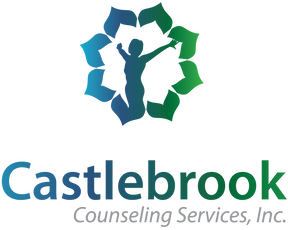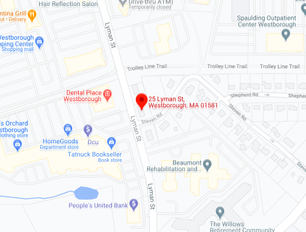Making Friends as an AdultBy Niamh Smithers, MA
Throughout childhood and adolescence, there are built in systems that help us meet and connect with others: school, organized sports, extra curricular activities… you name it! After high school, some individuals go on to higher education at colleges and universities where the options for clubs, social groups, and opportunities for connection seem somewhat endless. Regardless of the way in which you entered what I’ll refer to as “working adulthood,” I believe there is a common struggle that many people experience at one point or another when these systems start to break down... How do I make friends as an adult? So what happens when we no longer have the built in systems to help us make and maintain our relationships? As society evolves into using more and more technology, how do we stay truly connected to one another? And while, in many cases, technology has supported people being able to connect more through long distance phone calls, FaceTimes or social media, how do we continue using these tools to foster connection rather than create easy opportunities for disconnection. In other words, in the age of highlight reels, ghosting, and remote working, how and where do we find our people? Step 1: Find and Foster Your Authentic Self Understanding yourself and your experiences is a great starting place if your goal is to find connection with others. I’m sure you’ve heard the saying before, “People don’t often remember what you did, but they remember how you made them feel.” Have you ever considered how behaviors you engage in throughout the day make you feel? So often we “go through the motions” and are left feeling burnt out, numb, or disconnected from ourselves and our environments at the end of the day, which can easily translate into our relationships. While the primary message of this blog post is about connection with others, step one involves connecting with ourselves, which can be a powerful catalyst for creating and maintaining interpersonal relationships. If we are engaging with the external world in an authentic way, it can increase the chances we find other people who share similar interests or goals. Learning about and understanding our own limits, boundaries, and values can provide a great blueprint for how we want to feel about ourselves within our relationships. Next time you are spending time with other people, try noticing how your own energy, engagement, or self-perception changes (or doesn’t change) following the interaction. Step 2: Explore Likes, Dislikes, and Unknowns. If I asked you your favorite and least favorite food, you would probably be able to come up with an answer rather quickly. If I asked you to name a food you have never tried but are open to trying, that might take some more thought. When I say “explore likes, dislikes, and unknowns,” I essentially mean: stay open! To provide an example: Growing up, I never understood the desire to eat raw fish, yet I always found myself feeling like I was “missing out” when friends would get excited to get sushi. For a while, I only ate rolls that had vegetables or fully cooked fish, yet I could never say, “I don’t like sushi” as a way to explore other dining options because I had never truly tried it. One afternoon, with the support of my partner’s reassurance, I felt brave enough to try some sashimi (the rawest form of fish you could possibly order at a sushi restaurant). And let me tell you… that one brave, low-stakes leap of faith to try something I had never tried before (and was honestly a bit scared of) led me to discovering one of my favorite foods! This had a domino effect and led to me feeling more confident accompanying my friends to sushi outings, which led to me finding one of my favorite restaurants that serves excellent sushi while musicians perform live jazz (another new “like” I discovered), which in turn led to me planning more outings with my friends. All of this is to say, it is great to know what we like and don’t like. However, knowing what you like and dislike can sometimes create limitations or self-limiting beliefs. I used to believe I could never join my friends for sushi because I never ate “real sushi,” and it was those anxieties/fears and my assumed judgment from others that prevented me from exploring the unknowns. Next time you are presented with an opportunity to try something new, whether that be food, activities, or experiences, see if you notice any anxieties or fears emerge and ask yourself: would you like to live expansively or restrictively? Step 3: Explore Your Communities Now that you’ve built up an understanding of your authentic self and you’ve become open to the unknowns and potential limitations that can come with rigidly defined likes and dislikes, where do you look for your people? Let’s start with a list of general spaces to begin looking to increase your chances for meeting new people: volunteer opportunities, book clubs, local intramural sports, fitness classes, spiritual or religious groups, or hobby classes. You may be sitting there saying, “But how do I find these communities?” Some options for starting your search include: looking up your favorite coffee shop or book store to see if they host open mics or post about book clubs in the area. I often see those old-school tear off posters on bulletin boards in my local community hot spots, but I have rarely stopped to actually tear one off! When in doubt, Google is always there to help broaden your search. It may be helpful to start with a prompt such as “(insert hobby/activity) groups near (town I live in or near)”. Another way to explore your communities could be simply making an effort to do tasks you are used to finishing at home out of ease and comfort, and challenging yourself to go to a local library, cafe, or park (weather permitting!). Step 4: Maintenance As people transition further into adulthood, making plans to see friends can feel like a full-time job. Many friends move to different states, take demanding jobs, or simply don’t have the capacity to maintain friendships the way they did when those build-in-systems were in place. It can be an uncomfortable and challenging time when our friends aren’t as available as they once were, or even when we find ourselves lacking capacity to maintain our friendships the way we would like to. Key pieces of the maintenance puzzle are: being flexible, honoring limits, and communicating openly. I am intentionally putting “flexibility” and “honoring limits” next to each other because they almost contradict one another. Honoring limits does not necessarily mean being rigid and inflexible…and being flexible doesn’t necessarily mean sacrificing your own needs to maintain relationships by being overly flexible (because that can be a slippery slope!). Step 4 can sometimes be lumped into Step 1 in that, to honor your limits in interpersonal relationships, you must first understand what those limits are! After that, it’s up to you to communicate those limits to your friends. Being an adult is hard…meaningful connection to others can make it a little easier! If you’ve read this far and are still thinking, “Man…I wish there was a simpler, less wordy, less personally anecdotal way to learn about this!” you’re in luck! The mindfulness app Headspace, wrote a to-the-point article that can offer some additional ideas to support you in making connections: https://www.headspace.com/articles/make-friends-as-adult Comments are closed.
|
Archives
May 2025
Categories |
Mission Statement
Castlebrook Counseling Services, Inc. is a group of private practice clinicians with a shared goal of strengthening our community by providing therapy and clinical support designed for children, adults, and families to successfully meet life’s challenges.
 RSS Feed
RSS Feed

